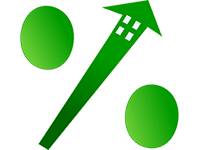
Loans and credit cards are borrowing methods, which help people secure the funds they need to undertake their plans.
We’re here to talk you through both credit cards and loans, allowing you to understand which type may be appropriate for you.
What are credit cards?
Credit cards allow you to borrow money when you require it. In other words, it is a continuous form of credit.
For example, if you need to make a purchase but you do not have the necessary funds in your current account, you can use your credit card to complete the transaction.
Any money that is spent on your credit card will need to be paid back. If the balance you owe is paid in full every month, you will avoid interest charges.
In the event that you can’t pay the balance in full and can only meet the minimum amount, you will start being charged interest.
Interest charges increase the amount you end up paying back overall, and so it is important for you to stay on top of your repayments to reduce the chance of this occurring.
The maximum amount offered to you will be determined by the creditor prior to issuing you with the card.
In order to determine how much money you can borrow, lenders will take into consideration both your credit history and individual circumstances.
What are loans?
Loans give you the opportunity to borrow a specific amount of money over an agreed period of time.
Repayments will usually need to be made on a monthly basis and will include any interest charges incurred.
Once the loan term has finished, the amount borrowed will have been completely paid off. Unless, you are on an interest-only loan, in which case you will have only been paying the interest back every month.
Determining the amount of money that can be borrowed is the lender’s decision.
They will consider your credit history, affordability and any other circumstances that may impact your ability to repay the loan, in order to establish how much to lend to you.
What are the benefits of credit cards?
One of the main benefits of a credit card is the fact that it allows you to borrow when you require it, giving you complete flexibility and control.
This can be particularly useful in situations where you may urgently need to borrow money.
Another benefit of credit cards is that many companies often offer promotions, which you can take advantage of.
For example, some companies may offer promotions when you transfer debts you have accumulated to the card, including giving 0% APR for a certain period of time.
Additionally, some companies give rewards for using the credit cards, to encourage you to continue using it.
What are the risks of credit cards?
Although credit cards can be beneficial, there are also risks with this borrowing method.
A particular risk of this method is that your credit score can be damaged if you fail to meet your monthly repayments.
In turn, this could harm your future success at securing other types of funding, making it difficult for you to fulfil your financial plans.
In addition, if you can’t pay off the balance in full, you will be charged interest.
If you are unable to make your repayments continuously, you may end up paying back a substantial amount of money overall, or accumulate debt.
What are the benefits of a loan?
With a loan, you can borrow a much larger amount of money compared to a credit card. So, it can be helpful if you have big financial plans.
Another benefit of loans is if you have a good credit score you may be able to get low rates. This means that you will be charged a lower amount of interest overall.
As a result of this, the amount of money you need to pay back will be lower.
Loans can also help to improve your credit score, if you make your monthly repayments on time.
This can positively affect you in the future, as having a good credit history improves your chances of being able to secure finance.
What are the risks of a loan?
There are a variety of risks that come with taking out a loan, including the fact that your credit score can be negatively affected if you miss any of your repayments.
Having a negative credit score can affect your chances at securing other funds, which could have a damaging impact on your future.
Therefore, if you are taking out a loan it is important for you to try and stay on top of your repayments to prevent this from occurring.
A further risk of this borrowing method is that some loans, such as secured loans, use an asset as security. This means that if you default on your repayments, the asset could be repossessed.
Finally, some lenders have additional fees you are expected to pay in order to take out the loan, meaning that the cost may be higher.
Summary
In summary, both credit cards and loans are useful borrowing methods, which can help you in a variety of different ways. Determining which type of finance you need depends on your plans and how much money you actually need.
Think carefully before securing other debts against your home. Your home may be repossessed if you do not keep up repayments on a mortgage or any other debt secured on it.





